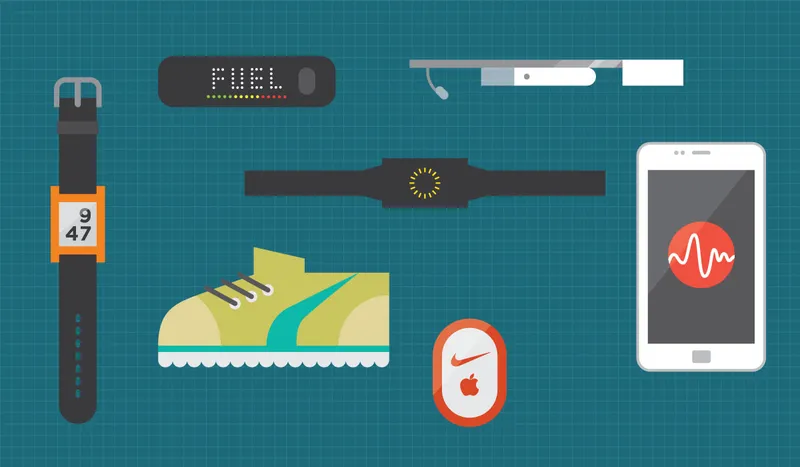What's stopping wearables from being worn today?
If the last five years were about smartphones, the next five will be about wearables, they say. Smart watches, smart gloves and smart glasses -- stuff right out of sci-fi movies from our childhood -- are now a reality.

By linking them to our smartphones, these strap-on gadgets will help us lead more efficient and comfortable lives. Or will they? But the important question is what’s stopping wearables from becoming popular? Let’s find out what the concerns are.
Health hazards
Health hazards are probably the first thing that you’ll hear about if you ask people why they aren’t using wearables. There have been articles on radiation risks from cell phones (to which most wearables are synched), allergic reactions caused by certain devices (remember Fitbit) and of course concern of overuse of such devices on development of children. This is an ongoing debate and the jury is still out on this one.
Read more - How Durex launched a vibrating underwear, Fundawear ?
Privacy
Peter Drucker said, “What gets measured gets managed.” In this context, it means data from your devices. Whether intimate health information or location data, it is now available to third parties – the app makers, your telecom provider or the company that makes the operating system. That’s a scary thought that takes me straight back to ‘The Minority Report’.
Privcy policies of most of these app makers are unclear and ever-changing. Ambiguously worded terms of service may give these companies just enough room to use your unprotected health datasets, once you’ve accepted and signed-up on their platform.
Government laws also haven’t changed to take into account sensitive medical data sets.

Most of these wearable devices, including pacemakers, glucose monitors, etc. are Wi-Fi enabled adding trauma to users in case it is hacked and possible loss of data. As data is slowly becoming one of the important parameters driving most decisions, our future is vulnerable.
Imagine waking up one day to find your heart rate beyond normal, and you get medication for it, though in reality your devise was hacked. This exploitation is unimaginable considering the complexity and sensitivity associated with this data.
Read more - Why Redg Snodgrass started the first incubator program built around Google Glass and wearable technologies?
Not habit forming
This is a typical teething problem faced by any new technology. Most users fail to get into the habit of using their smart watch or their smart glasses without a reminder. Early studies have shown that most people fail to wear their devices rendering them useless. Obviously the reality of wearable computing isn't as compelling as its promise. But we see this as a temporary problem which will sort itself out.
Read more - Why GoQii isn't just another wearable fitness tracker?
Chaos
There is way too much chaos around these wearables with software updates and non-uniformity of apps and platforms usurping data from users. Another huge turn-off for users is that these wearables need to be charged daily or more frequently. Again, this seems to be an early-stage problem and will get solved in time.
Costing and need
Another hurdle, among Asian consumers at least, is in the costing. Samsung’s gear 2 watch costs $150-$275 on Amazon, compared to $50-$100 that a regular watch costs. Unless the makers create a compelling need to wear and use these devices, they have little chance of taking off. More than usability and convenience, wearables need to reach the level of addiction that smartphones have now reached.
Flipkart recently launched an app that works on smart watches, probably among the first non-hardware, non-app making company to take this step. While on one hand, this is designed to push the sales of smart watches on its platform, on the other hand, it is also a means to create the addiction. Flipkart is known for short-span bonanza deals, and what better reason could you have to install the app on your watch, which stays with you day and night, even more than your phone?
Read more - Why did Flipkart launch its smartwatch app so quickly?
Thus, by focusing attention on software, treating it like miniature game consoles, we may find a compelling reason to keep attaching wearables to our wrist, face, and even our babies! Until that happens, we can wait and watch.







